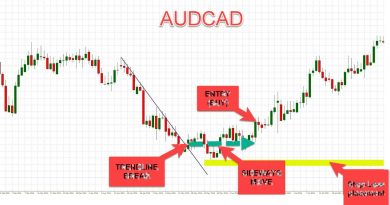What Are Small-Cap Stocks and Are They a Good Investment

Contents
- 1 What Are Small-Cap Stocks, and Are They a Good Investment?
- 1.1 What Is a Small-Cap Stock?
- 1.2 Understanding Small-Cap Stocks
- 1.3 Small-Cap Stock vs. Large-Cap Stock
- 1.4 Small-Cap Stock vs. Mid-Cap Stock
- 1.5 Small-Cap Stock vs. Penny Stock
- 1.6 Advantages and Disadvantages of Small-Cap Stocks
- 1.7 How to Invest in Small-Cap Stocks
- 1.8 Small-Cap Stock Indexes
- 1.9 Are Small-Cap Stocks a Good Investment?
- 1.10 Which Is Better, Small-Cap or Mid-Cap?
- 1.11 Is Small-Cap Good for the Long Term?
- 1.12 The Bottom Line
What Are Small-Cap Stocks, and Are They a Good Investment?
What Is a Small-Cap Stock?
A small-cap stock is a stock from a public company with a market capitalization of about $250 million to $2 billion. The figures vary.
Small-cap stocks are up-and-coming companies growing fast, the large-cap stocks of the future.
Key Takeaways
- Small-cap stocks have a market capitalization of $300 million to $2 billion.
- Investors seek growth opportunities by focusing on small-cap stocks.
- Small-cap stocks historically outperformed large-cap stocks but are also more volatile.
Understanding Small-Cap Stocks
The "cap" in small-cap stands for capitalization. It is the market’s estimate of a company’s total dollar value. Calculate market capitalization by multiplying the current share price by the number of outstanding shares.
"Large-cap" or "small-cap" classifications change and vary among brokers.
Contrary to misconception, small-cap stocks are not only startups. Many are well-established businesses with strong financials. Small-cap stock prices have a greater chance of growth.
Small-Cap Stock vs. Large-Cap Stock
Small-cap stock companies offer more room for growth but also bring greater risk and volatility than large-cap stock companies.
Large-cap companies like General Electric (GE) and Coca-Cola Co. (KO) offer stability and dividends but rarely fast growth.
Small-cap stocks historically outperformed large-cap stocks, although performance varies based on the economic climate. Large-cap stocks dominated during the tech bubble of the 1990s, but small-cap stocks performed better after the bubble burst.
Investing in small-cap stocks can beat institutional investors since many mutual funds have rules against buying them. This makes it difficult for them to build a meaningful position.
A micro-cap stock, smaller than a small-cap, has a market capitalization of about $50 million to $300 million.
Small-Cap Stock vs. Mid-Cap Stock
Mid-cap stocks, with market capitalizations between $2 billion and $10 billion, offer stability and growth potential between small-cap and large-cap stocks.
Spending time researching small-cap stocks can be time well spent. Good small-cap investments fly under the radar, getting little analyst coverage.
Small-Cap Stock vs. Penny Stock
Penny stocks have lower market value than large- or mid-cap stocks. They have small market capitalizations and can be considered small-cap stocks, but not all small-cap stocks are penny stocks.
Penny stocks have share prices below $5 and are considered high-risk investments due to their low price, lack of liquidity, and wide bid-ask spread.
Small-cap stocks can have share prices greater than $5 and are categorized based on market capitalization.
Advantages and Disadvantages of Small-Cap Stocks
Advantages
- Potential for growth: Smaller companies have more growth potential.
- Lower share price: Small-cap stocks have lower share prices.
- Variety of businesses: Small-cap companies are found in various industries.
- Less popular: They are often priced below their value.
Disadvantages
- Volatile prices: Small-cap stocks can see sudden and wide price fluctuations.
- High risk: They are riskier investments due to less access to investment capital and sensitivity to market changes.
- Less available information: Research and understanding is crucial since small-cap companies receive less coverage.
- Low liquidity: Stock is less liquid and harder to buy/sell compared to larger companies.
How to Invest in Small-Cap Stocks
If you have the time and knowledge, research individual small-cap stocks and invest through a brokerage account. Investigate earnings and revenue growth, price-to-earnings ratio, and price-to-sales ratio.
If researching individual stocks is time-consuming or risky, buy small-cap mutual funds or ETFs that track small-cap indexes or specific industries.
Small-Cap Stock Indexes
Brokerages offer small-cap stock index funds, like the Vanguard Small-Cap Index Fund (VSMX) or the Fidelity Small Cap Index Fund (FSSNX).
Two main small-cap indexes used as benchmarks are the Russell 2000 and the S&P SmallCap 600 Index.
The Russell 2000
The Russell 2000 is composed of the 2000 smallest companies in the Russell 3000. Used as a benchmark for small-cap stock mutual funds, it is heavily weighted by financials, industrials, and healthcare.
S&P 600
The S&P SmallCap 600 Index tracks small-cap stocks in the U.S. equities market. It includes companies with a market capitalization between $750 million and $4.6 billion. Companies must meet specific requirements to be included.
Are Small-Cap Stocks a Good Investment?
Small-cap stocks can be good investments as they have potential for significant growth. However, they are riskier and more volatile than large-cap stocks. Investors must analyze carefully before making investment decisions.
Which Is Better, Small-Cap or Mid-Cap?
Both small-cap and mid-cap stocks can be good investments depending on individual companies. Small-cap stocks offer more growth potential but are riskier and more volatile.
Is Small-Cap Good for the Long Term?
Small-cap stocks can be good long-term investments if they have good fundamentals and healthy analysis. Investing before a bull run and holding for the long term can result in a strong return.
The Bottom Line
Small-cap stocks, with market capitalizations between $300 million and $2 billion, offer investment opportunities with the potential for significant growth. Investors must evaluate companies carefully to determine growth potential.



